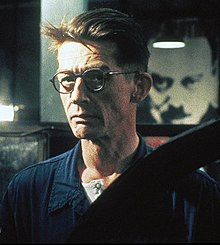Protagonist
After observing the main character, as well as the protagonist, throughout the entirety of the novel 1984 by George Orwell, one comes to the conclusion that the literary theory of post-colonialism heavily impacts the character development of Winston Smith, as well as his preexisting traits. Winston Smith resides in Oceania, which is currently under the occupation of a totalitarian superpower government known across the world as 'The Party'. The creation of this entity by Orwell is already one instance in which he implements the post-colonial theory, to display his criticism of the philosophic values of imperialism. The post-colonial theory expresses the relationship between the colonized people and their colonizer, which is perfectly depicted in the novel.In the case of this book, Winston, as well as the other citizens of Oceania, are the colonized. The Party, as well as Big Brother who looms over the entirety of the continent, are the colonizers. Winston is placed in the middle of this dystopian society, being a government worker for The Party in a division known as the Ministry of Truth. Winston is a character who is having second thoughts about the government that he is forced to live under.The protagonist makes it clear right from the start that his position on the government is negative with him despising the totalitarian government, but on the other hand he is too afraid to speak out because he knows first hand how the government deals with internal opposition. As the novel's plot progresses, Winston has a series of internal struggles with the idea of rebelling against Big Brother, the figurehead of the oppressive government that rules over Oceania with an all-seeing-eye.Winston commits small acts of rebellion, or “thought crimes”, as Big Brother calls it, throughout the novel, in order to quell the sense of rebellion building inside of him.One of these thought crimes could be observed when Winston secretly keeps a paperweight from a previous era - in era that was not under the censorship of The Party and the watch of Big Brother. The imperialistic nature of The Party results in this sort of 'rebel' bubbling up in the depths of Winston, finally emerging when he commits this thought crime. This character development of our protagonist can be analytically observed and dissected due to the presence of the post-colonial theory.


Comments
Post a Comment